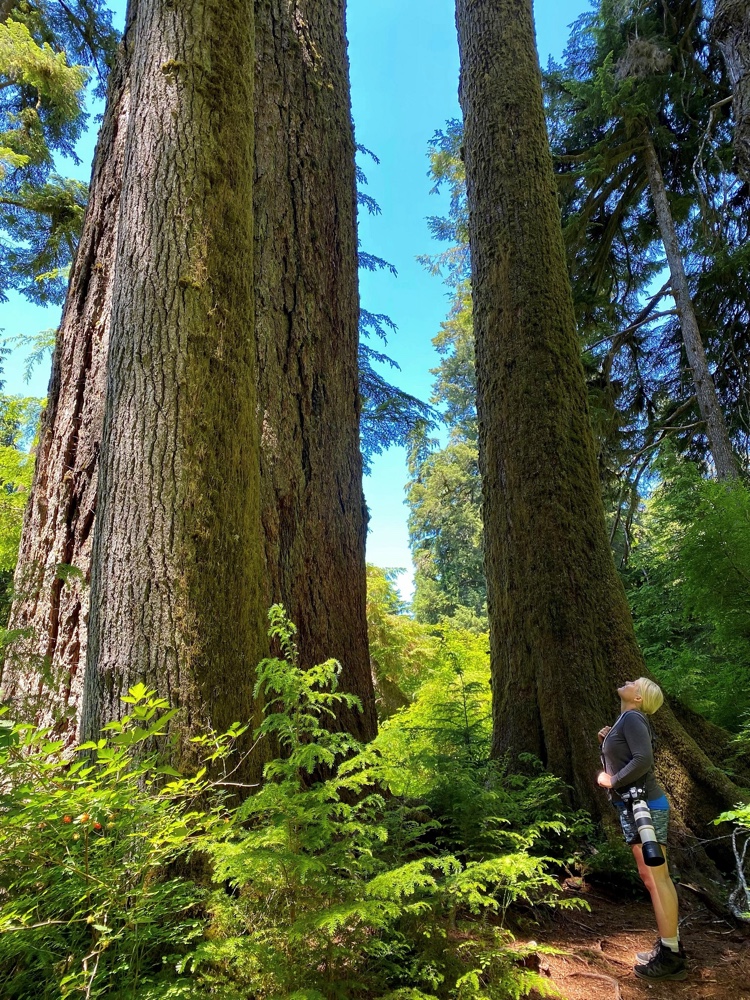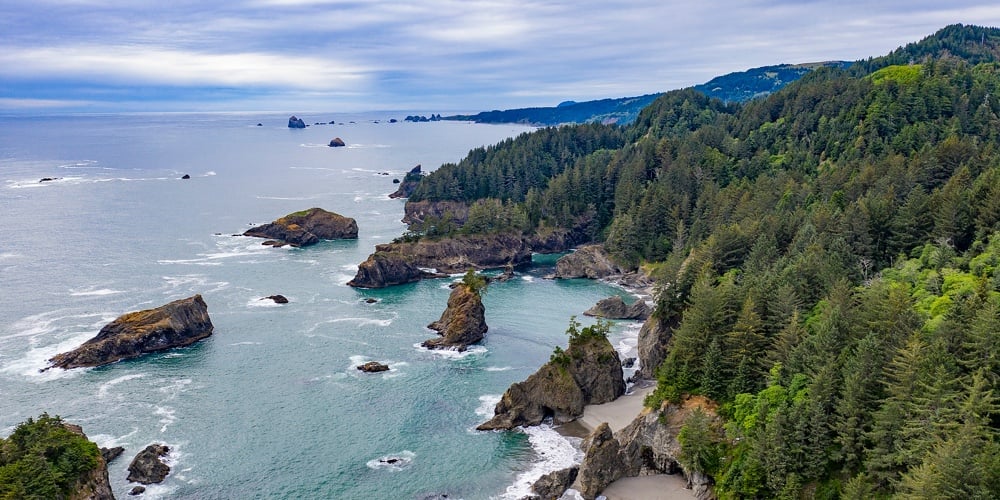If you follow CUInsight, you’ve undoubtedly heard Jill Nowacki’s philosophy of doing what lights you up.While my career in credit unions is extremely important to me, hiking and backpacking is what lights me up.How is spending time on a trail in any way related to financial industry content?It is, I promise.Bear with me.
Two weeks ago, with help from a hilarious and patient man named Rodrigo at the Bureau of Land Management, my husband and I set out to locate a special gem in Oregon’s Coast Range called Valley of the Giants.Valley of the Giants is a tiny, 51-acre preservation site accessible only by a confusing web of mostly unmarked and very rough logging roads.This magical grove is home to some of Oregon’s oldest trees.Many are over 200 feet tall, 25 feet around, and 450 years old, and one that fell in 1981 (but remains for visitors) was a 600-year-old Douglas Fir that was 35 feet around.

As I stood before those Giants and breathed in the damp, cool, clean-yet-ancient-smelling air, my problems felt so small.I felt so small.I’ve been on Earth for 42 years.Those trees were growing and thriving and spreading their deep roots when Shakespeare walked the streets of London, Pocahontas was taken captive to Jamestown, and the Mona Lisa was being painted by Leonardo da Vinci.How can one stand before them and feel large, important, or concerned over an email string?
I was reminded, yet again, that nature provides perspective.Feeling overwhelmed?Go out into nature.Feeling angry or frustrated?Go out into nature.Struggling with brain fog or feeling like your days blend together?Go out into nature.Worried or anxious?Go out into nature.
Nicole Apelian, Ph.D., is a hero of mine.A talented scientific researcher, she was unexpectedly diagnosed with multiple sclerosis in 2000 and embarked on a purposeful journey seeking holistic wellness.She became famous after competing on History Channel’s Alone.Watching Nicole compete and hearing her describe her MS symptoms was actually one of the factors that led to my own diagnosis in 2018, because I vividly remember sitting on the couch with my heart pounding and thinking,“That’s what’s happening to me.What if this is MS?”I feel enormous gratitude to Dr. Apelian, not just for the insight I needed on my own health journey, but for the insight she has provided on the importance of communing with nature.Just a few days ago, she posted, “Through nature, I find pure joy and happiness.I not only know how important it is for me, but for humans in general, to get lost in nature every now and again.A breath of fresh air and time away from the noise of everyday life can help you heal, reset, and can ultimately be the best thing for you.”She often quotes John Muir, and a guiding principle in his words is, “Keep close to nature’s heart… and break clear away, once in a while, and climb a mountain or spend a week in the woods.Wash your spirit clean.”
This concept of connection with nature isn’t just a social media trend or sought-after lifestyle by young Instagram adventurers.The University of Minnesota recently published a research-based article that included this compelling statement:
Being in nature, or even viewing scenes of nature, reduces anger, fear, and stress and increases pleasant feelings. Exposure to nature not only makes you feel better emotionally, it contributes to your physical wellbeing, reducing blood pressure, heart rate, muscle tension, and the production of stress hormones.
Yale published an article by Jim Robbins in 2020 citing a study of 20,000 people, concluding that only 120 minutes of time in nature produced a sense of health and well-being.In 2015, a UK study revealed that increased exposure to nature correlated to “more community cohesion and substantially lower crime rates.”Japanese researchers studying the concept of “forest bathing” have noted that inhaled aerosols from forests increase immune cells that are known to fight tumors and infections.This is real stuff.
At Maps Credit Union, we recently invested in our first Chief People Officer, Scott Sadler.Scott specializes in wellness, mindfulness, and culture development (among other things).One of the first actions Scott took as CPO was providing the Calm app to every Maps employee at no cost.Our employees love it, and it was no surprise to me that many of the options on Calm are “nature melodies.” There is a reason this app is consumers’ award-winning top choice for meditation and sleep.Even listening to nature has benefits!
I know that this article alone won’t convince anyone to appreciate the immense restorative and rejuvenating power of nature, but I hope it gives you enough curiosity to give it a try.You don’t have to spend $1,000 at REI on an Osprey backpack, poles, tent, and bear canister (though I’ll gladly accept your points on my membership ID).Start small.Find green space.Join a hiking group on Facebook and connect with people who have a similar skill level.Hiking not your jam?Try biking, reading on a park bench, floating a river, paddling across a lake, camping in your backyard, or simply sipping some coffee under the shade of an old tree and listening to the birds you hadn’t even noticed were there before.
Allowing nature to help clear your head is immensely beneficial—not just to your health—but to your performance on the job.It provides peace and perspective.It provides clarity and focus.It pulls your mind out of the haze of bright screens, early alarms, buzzing phones, and Zoom meetings, and it allows you to analyze challenges from fresh angles (and with greater energy).
I’ll conclude with my favorite John Muir quote of all, which hangs where I can see it every day.
“Of all the paths you take in life, make sure a few of them are dirt.”







